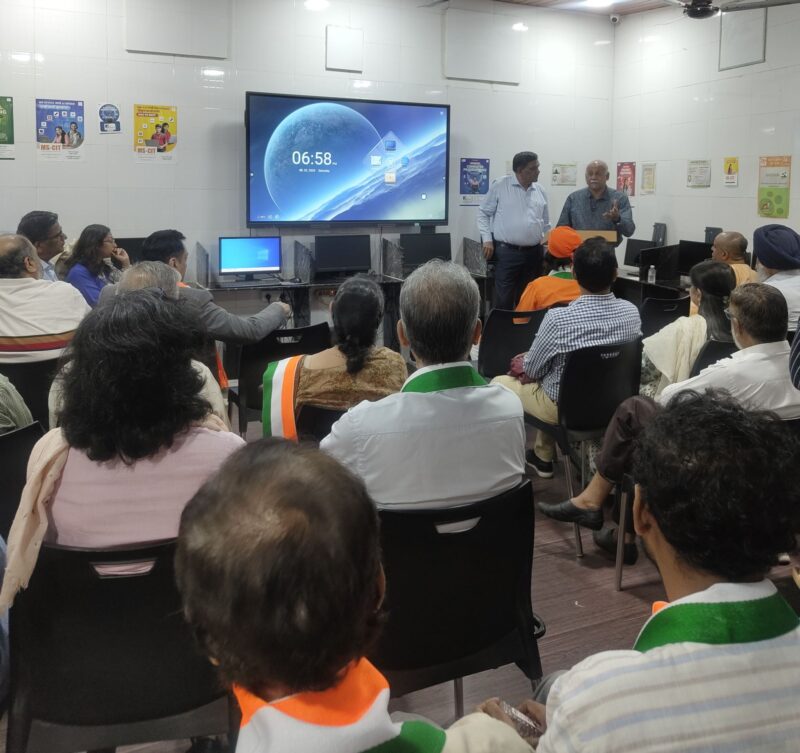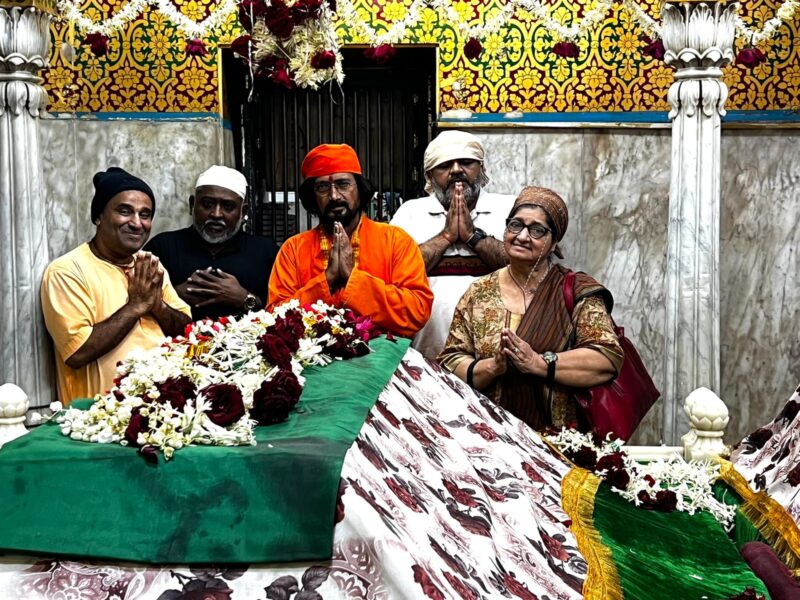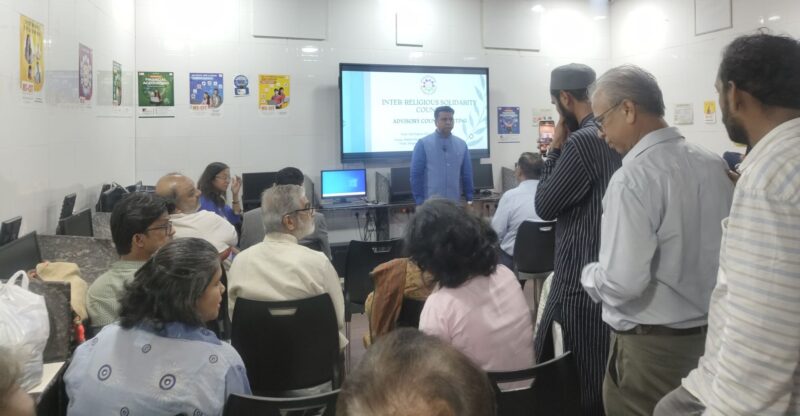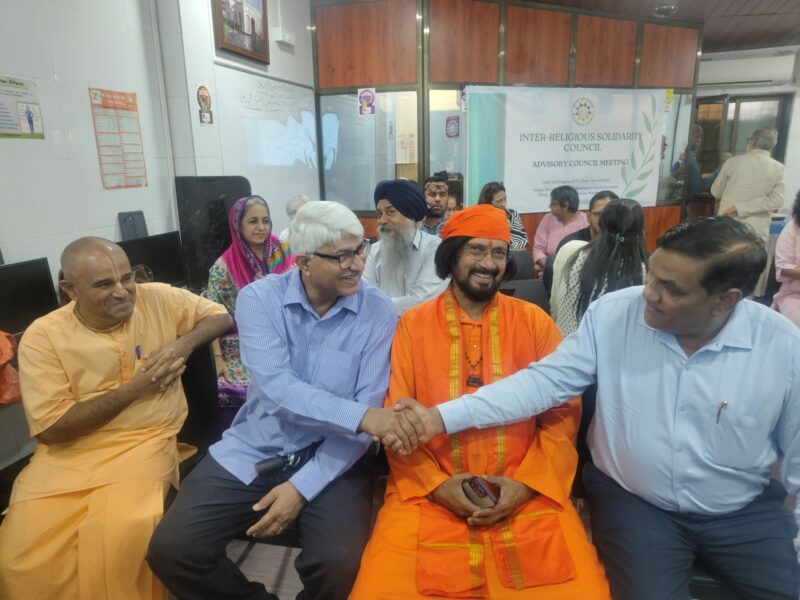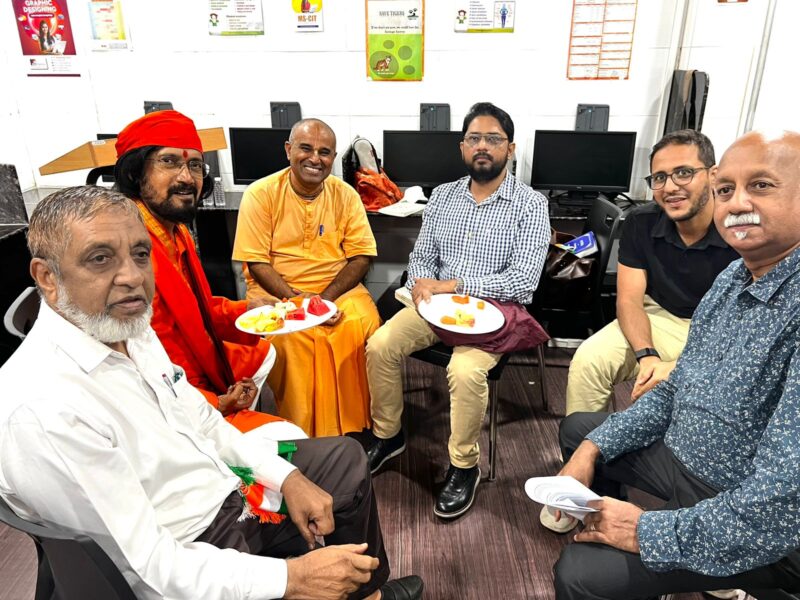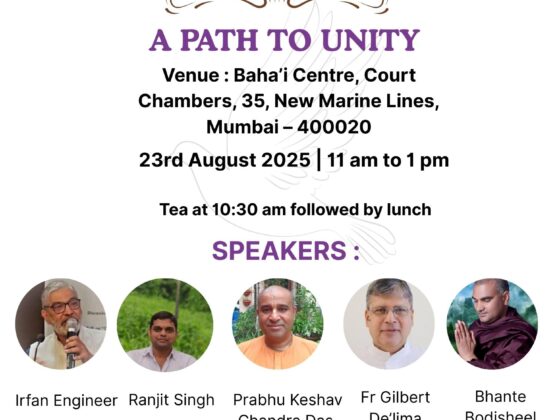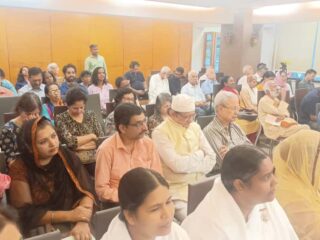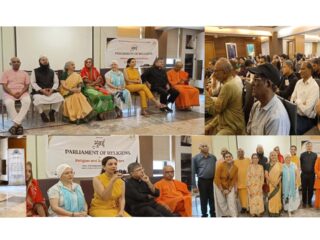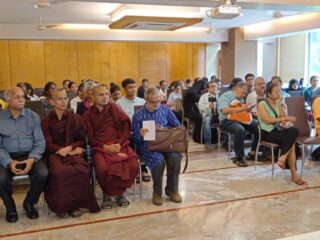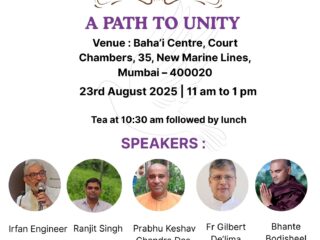Diya Sameer
12/08/2025
Mumbai is a city defined by its indomitable spirit and extraordinary diversity—a mosaic of faiths, cultures, and communities living side by side. Yet, in these complex times, with rising concerns about religious intolerance and social fractures, the need for a unified voice calling for harmony has never been greater. It was with this purpose that the Interreligious Solidarity Council (IRSC) convened its second Advisory Council meeting on August 2nd at Mahim Dargah.
The IRSC was established as a platform in 2023, where leaders from different religions, faith practitioners, civil society members, and concerned citizens come together to nurture mutual understanding, respect, and cooperation. It is not just another forum for inter-faith dialogue but a sustained movement committed to fostering peace, safeguarding religious freedom, and promoting a spirit of open dialogue and shared humanity in Mumbai.
This gathering aimed primarily to solicit guidance and active involvement from members of the Advisory Council to shape the work of the IRSC and its interventions and to identify and address challenges.
The evening opened with convener Prabhu Keshav Chandra Das welcoming everyone with warmth and purpose. Reflecting on the founding spirit of the IRSC, he reminded the gathering that “charity begins at home,” encouraging all to start from Mumbai itself in building a city that stands as a beacon of peaceful coexistence. He quoted Chaitanya Mahaprabhu, emphasizing, “To help elevate others, we must first elevate ourselves.”
His speech affirmed that the assembly was more than symbolic—it was a significant step toward a spiritually rooted and united Mumbai, calling for “open minds, open hearts, and a shared commitment to peace and brotherhood.”
Following this, Neha Dabhade, executive director, Centre for the Study of Society and Secularism (CSSS) took the floor to explain the essence of being part of the IRSC. She clarified that the Council was never intended as an “event-to-event platform,” but a continuous process of engagement, education, and collective action rooted in interfaith solidarity. The Council’s mission, she explained, is to counter extremism and supremacist ideas, protect cultural and religious diversity, and collaborate across faiths to serve those in need.
Rejecting political overtones that misuse religion to encourage polarisation of religious identity, Dabhade urged the Council to not shy away from identifying issues plaguing day to day lives. She spoke of the importance of addressing contemporary challenges, while warning about the dangers of hatred and stereotypes amplified by social media.
Following Neha’s presentation, an open session was facilitated by Stanley Fernandez and Rev. Devdan Tribhuvan to invite suggestions from council members on strengthening the IRSC’s work. Nargis Gaur called for attention to curriculum and books, and suggested a program like the Basics of Inter-Religious Dialogue (BIRD) initiative. Prof. Surinder Kaur spoke of the IRSC as a revival of the Bhakti movement that once swept through India and stressed the importance of connecting with the youth. She emphasized reaching young people, celebrating festivals for unity, and making educational programs from religious institutions publicly known. Kavita Pai recommended accessing schools and universities, and creating a training module for students as facilitators, while Dr. Mangeshda proposed engaging youth with awards and competitions.
Dr. Salim Khan proposed that the council hold a one-hour online meeting each month where people from different religions could share their scriptures, values, and perspectives in an interactive and educational session. He further suggested a second session the following month to discuss burning societal issues, forming a continuous process of dialogue and application. Rev. Devdan Tribhuvan highlighted the need for religious leaders to address problems like human trafficking, child abuse, and drug abuse. Shweta Tambe pushed for mental health, de-addiction, and job-related programs for youth. Both Prof. Kaur and Astrid Lobo urged tackling the roots of disharmony, while Sister Mudita Sodder called for forming a close-knit advisory committee within IRSC.
The meeting concluded with a shared commitment to bridge community gaps through the many ideas and suggestions raised. The Interreligious Solidarity Council was reaffirmed as a vital platform to actively oppose religious intolerance and promote harmony and love. Serving as a collective conscience and moral compass, the Council will issue timely statements to distance itself from hatred and division. The gathering ended with a solidarity dinner followed by a visit to the Mahim Dargah shrine to offer their respects and prayers.

